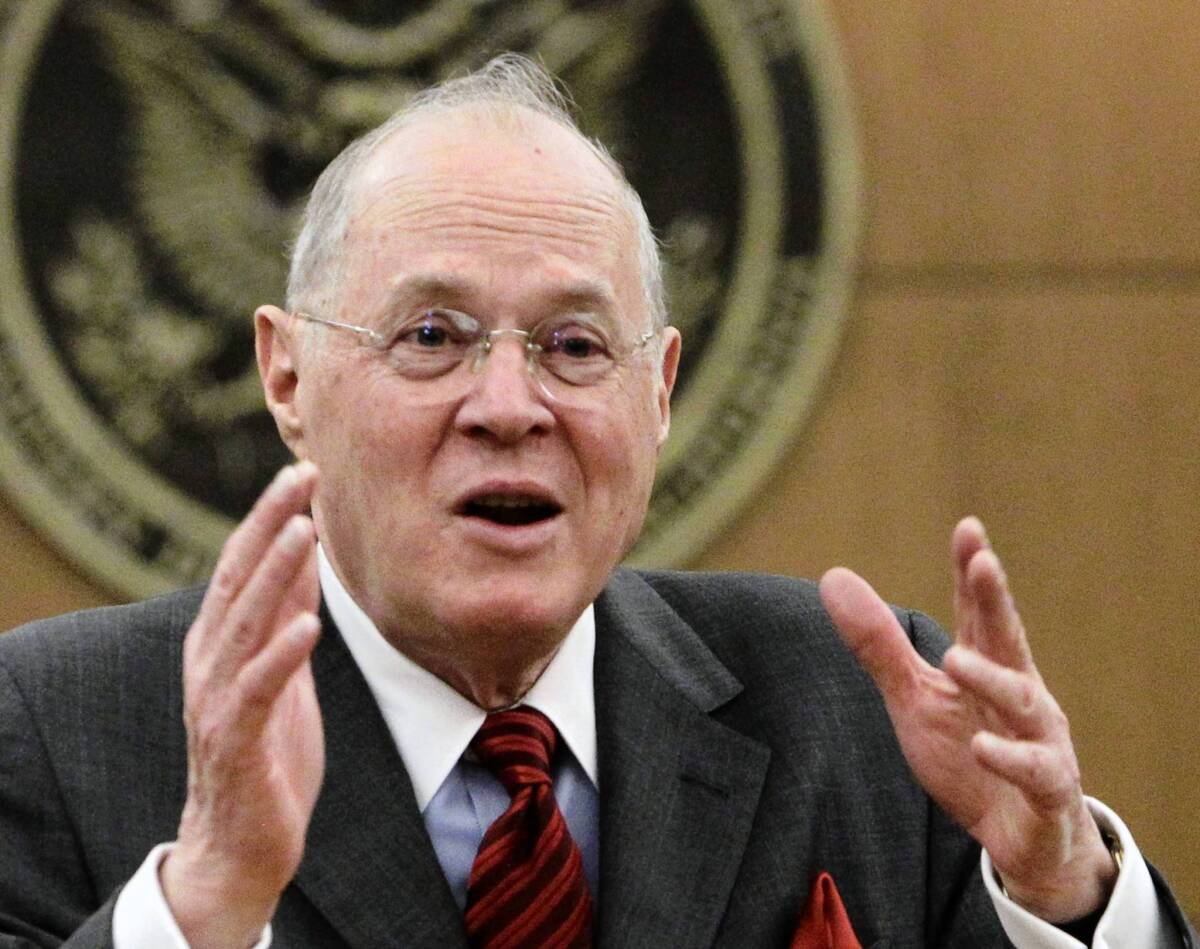California prison overcrowding issue goes back to Justice Kennedy

- Share via
WASHINGTON — U.S. Supreme Court Justice Anthony M. Kennedy is in a position to decide — again — whether California’s overcrowded prisons must release more than 9,000 inmates by the end of this year, but at the risk of sending some violent criminals back to the streets.
Two years ago Kennedy spoke for a 5-4 majority in upholding one of the largest prison release orders in U.S. history, affirming a three-judge panel in California that concluded prisoners were dying from a lack of decent medical care because of severe overcrowding and the state’s failure to act. Kennedy said the conditions amounted to cruel and unusual punishment.
The state was ordered to reduce its prison population to 137% of capacity within two years. That could mean releasing or transferring as many as 46,000 inmates since the beginning of the current case in 2008, Kennedy said. So far 37,000 have been released.
But Kennedy also said that “if significant progress is made toward remedying the underlying constitutional violations,” that could “demonstrate that further population reductions are not necessary.”
Citing these passages, Gov. Jerry Brown is now asking Kennedy and the high court to block a pending order from a special three-judge U.S. District Court panel that calls for releasing 9,600 more inmates by the end of the year.
In the emergency appeal, Brown’s lawyers say the state has spent $1 billion to upgrade its prisons and improve the medical care of its 119,000 inmates.
In a brief filed late Monday, the state’s lawyers said most of the prisoners who are nonviolent offenders are being kept in county facilities. Most of those who would be released now are classified as moderate- to high-risk inmates, the state said.
“Unless stayed, the three-judge court’s order will release offenders with a history of serious or violent offenses who are very likely to commit more serious crimes,” the lawyers said.
Because Kennedy oversees emergency appeals from the West Coast, Brown’s request went to him. The justice could act on his own or refer it to the full court. But either way, the decision is likely to rest with Kennedy, a California native. The four liberal justices joined his 2011 opinion in the case, and the four conservatives dissented.
If Kennedy and the court grant the stay request, it will give the state time to file a full appeal in the fall. If the justices turn down the request, the state will go ahead with plans to transfer or release more inmates, Brown has indicated.
Lawyers representing the prisoners urged Kennedy to turn down the appeal. “This is political posturing. It’s the manufacturing of a constitutional crisis,” said Rebekah Evenson, a Berkeley lawyer.
In their brief filed with Kennedy, the lawyers said it was “truly remarkable” that the state would defy the high court’s decision requiring the prisons to meet the 137%-of-capacity limit. “Rather than redoubling their efforts” to comply this year, state officials “have adopted a stance of outright defiance,” they said.
The lower court judges also made clear this month that they were not willing to tolerate further delays. They noted that the lawsuits challenging the prison overcrowding began more than 20 years ago.
“After this long history of [the state’s] noncompliance, this court cannot in good conscience grant a stay that would allow defendants to both not satisfy the Population Reduction Order and re-litigate the Supreme Court’s emphatic decision in the very case before us,” they said.
The order was signed by 9th Circuit Judge Stephen Reinhardt of Los Angeles and U.S. District Judges Thelton Henderson of San Francisco and Lawrence Karlton of Sacramento.
More to Read
Sign up for Essential California
The most important California stories and recommendations in your inbox every morning.
You may occasionally receive promotional content from the Los Angeles Times.











